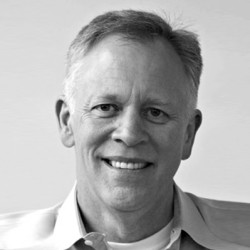Beyond the Bible and the Holy Spirit, the most determinative ingredient in preaching is the preacher. The sermon matters, but the preachers who prepare and deliver the sermon matter more. Sermons stumble when preachers do not know the God they are proclaiming, the text they are preaching, or the audience they are addressing. But sermons falter most when preachers don’t know themselves. John Calvin thought that we cannot know ourselves for who we really are without knowing God and that we cannot know God without reconsidering ourselves. If this is so, the preacher and the sermon inevitably reflect the presence or absence of this self-knowledge.
This makes it all the more interesting that so much prayer, study, time, money, technology, and more suggest that preaching is all about sermon-craft. That it’s about preparing the sermon itself, as though it were the critical artifact. Seminaries, denominations, churches, publishers, websites, and more give witness to how much preaching and sermon-craft are thought to be synonymous. Sermon-making is a kind of ecclesiastical industry.
Sermon-craft has an important place no doubt. It would be naïve, inadequate, and inexperienced to argue otherwise. But the most visible and inescapable communication of God’s Word that occurs through preaching is the preacher. Who are the preachers? What really matters to them? Why? What resonance do their lives and voices have in relation to the Living Word, to the biblical text, to the congregation, or to the wider culture? How do they embody their messages? Or do they? How do their lives become channels by which to encounter God’s grace, to know God’s truth, to seek God’s justice?
These are the questions that occupy the Ogilvie Institute of Preaching and its core vision: to proclaim Jesus Christ and to catalyze a movement of empowered, wise preachers who seek justice, love mercy and walk humbly with God, leading others to join God’s mission in the world. The Institute is focused on the formation of empowered, wise preachers who seek to live into and preach the convergence of worship, preaching, and justice.
The core of this effort occurs through Micah Groups: regional preacher-formation groups. Micah Groups are 12-person, multidenominational, multiracial, mixed-gender, and mixed economic communities of preachers who gather in regional settings all over the country. They are formed by two cofacilitators from that region, and meet first for an opening retreat, and then for a half-day every other month for two years, and a closing retreat at the end.
An intentionally diverse peer-community for study, reflection, and integration can make significant contributions in shaping the heart, mind, life, and practice of a preacher. Stimulating and diverse content is delivered to Micah Group participants weekly and bi-monthly primarily through materials aggregated from various sources and created by the Institute in order to serve these unique, individual groups.
Micah Groups began in 2011 in the seven regions where Fuller has campuses. In March 2012, about thirty new Micah Groups are beginning all over the United States and in a number of international settings.
The turbulent, confused, needy world we live in does not need sermons per se. It needs empowered, wise preachers whose lives and preaching help form empowered wise communities, who live empowered, wise lives in the world as evidence of the Living Word who has spoken and still speaks. Those are the sermons—in word and deed—that most effectively bear witness to our God.

